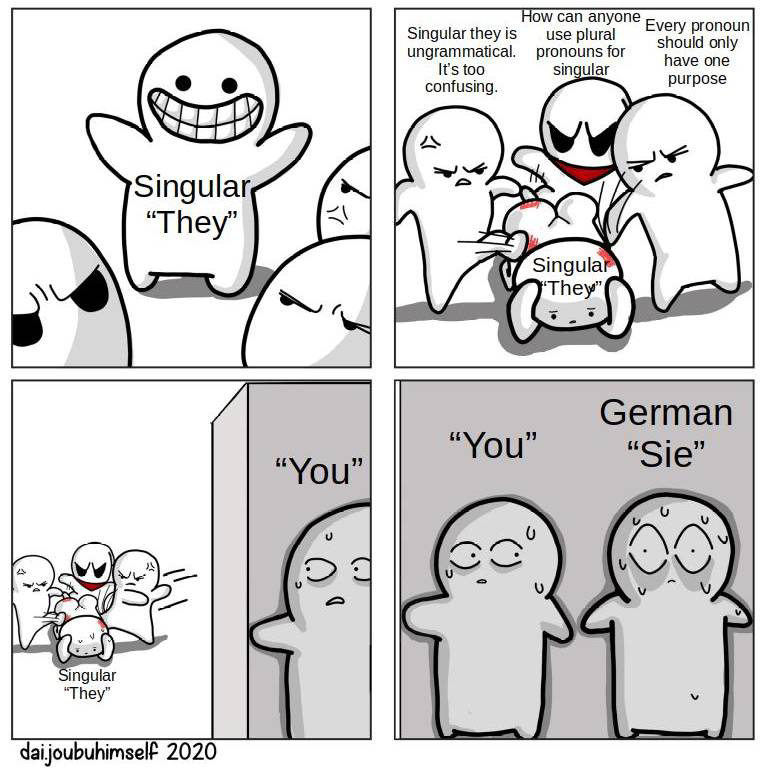this post was submitted on 24 Jul 2023
602 points (97.6% liked)
196
16774 readers
2596 users here now
Be sure to follow the rule before you head out.
Rule: You must post before you leave.
founded 2 years ago
MODERATORS
you are viewing a single comment's thread
view the rest of the comments
view the rest of the comments

It's not change itself that I hate, it's when the change makes language less useful. Example, "literally" meaning its opposite, "figuratively," through common misuse. "It was literally the million-dollar question" used to mean that it was a question that, if answered, would actually be worth a million dollars rather than figuratively meaning it was an important one to answer. Now it's unclear.
Care to give examples?
No, examples of words that mean two opposite things at the same time, since you apparently said that every single word in existence has always been that way. "Bad" comes to mind, though it's a lot easier to tell from context which meaning it has compared to "literally."
Another non-english example would be the german word "umfahren" which can mean both driving around or over something, depending on context
I like you, you get me. Adapting the language to serve the common denominator isn't great since the common denominator is generally an idiot. We, as a people, are fairly stupid on the whole. Codifying the literal opposite of a word into that words definition is reducing the clarity of the language, requiring further clarification for the uncertainty, suddenly a relatively terse statement becomes a long unwieldy mess of clarifications for all the idiosyncrasies of the words, since the words have so many contradictory meanings that the statement can be interpreted in any number of ways, instead of how it was intended.
Over time, the common meaning of terms has been diluted to the point where most statements need clarifying context to even be correctly understood.
Or extensive, originally meant spread out, but is also used for comprehensive.